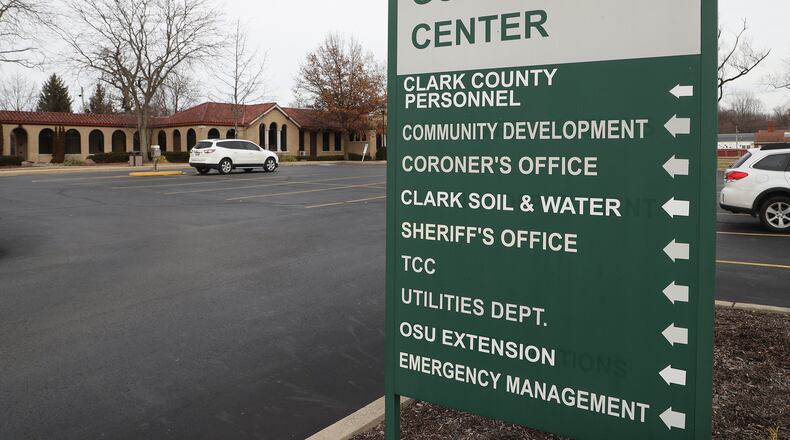Flax Wilt said the pay increase was, “much-deserved.” Non-collective bargaining unit employees last received a pay increase in 2018, in which workers received a 2% raise the cost the county about $200,000.
More from Riley Newton: Springfield varsity boys basketball coach arrested on domestic violence charge
“Sales tax revenues have steadily increased over the last year which has allowed us to reinvest in our employees, aging county infrastructure and programming that supports workforce and youth development,” Flax Wilt said. “For the first time in decades, Clark County is showing strong economic growth thanks to strategic decision-making and collaboration with our partners.”
According to a statement from the county, an 8.9% increase in sales tax revenue is projected in 2020 due to retail growth and changes to online sales tax collection.
The county used about $6.3 million in carryover funds from 2019 to balance this year’s budget, the county’s statement said.
Clark County’s 2020 budget is about 6.5% higher than 2019’s $183 million budget. Clark County spokesperson Michael Cooper said the bump in the total is due to, “a bunch of little increases.”
Cooper sited things like two United Senior Services levy’s which generated about $3.4 million, $2 million in increased funding from the state to be paid to the Department of Job and Family Services, $2 million in profits generated from 2019’s new state gas tax to be put towards the Clark County Engineer’s office and $2.5 million in construction grants that were awarded from the state for renovations on the AB Graham building.
“Little things like that really add up and it ends up really helping us out in the end,” Cooper said.
Cooper said the county also added $2.5 million to this year’s budget from the county’s general fund.
More from Riley Newton: GoFundMe set up for Mad River Twp. man who lost everything, including 3 cats, in arson
The largest expense found in the 2020 budget is about $14.8 million that will go to the Clark County Sheriff’s Office, down slightly from $15 million last year. The sheriff’s office regularly has the highest expense as it runs several agencies, including the Clark County Jail.
Cooper said some of the sheriff’s office funding will go towards improving the jail. Last May, a jail assessment and feasibility study found numerous critical issues within the Clark County Jail.
“We are going to take some of the funds and start to make those improvements little-by-little over the next couple of years,” Cooper said.
This year, the county is considering replacing existing aluminum windows and replacing elevators.
The budget, which was approved at the commission’s Wednesday meeting, also includes about $145.9 million in special revenue funds. Special revenue funds include things like utilities and federal pass-through dollars used by the Clark County Department of Job and Family Services.
County departments like the Community Improvement Corp. (CIC), the Clark County Soil and Water Conservation District and the Clark County Ohio State University Extension also received about $2.8 million combined for capital projects and operating money.
$195 million: In Clark County’s proposed total budget for 2020
$49 million: In general funds in Clark County’s proposed 2020 budget
2.25%: Rise for non-collective bargaining, or non-union, employees, totaling $477,000
The Springfield News-Sun is committed to covering local government in Clark and Champaign Counties.
About the Author
